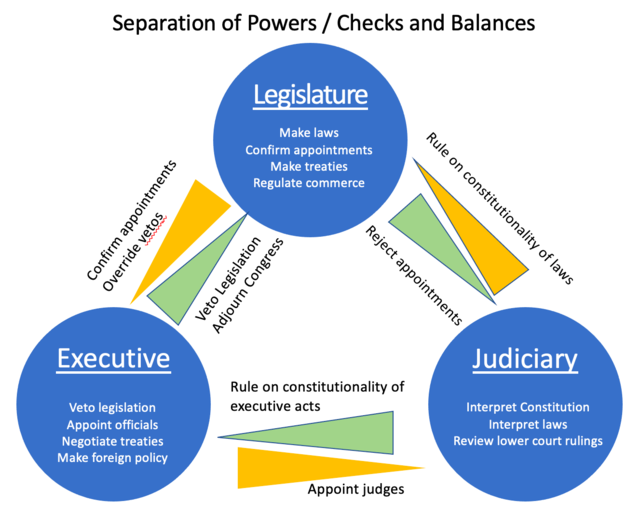The United States Constitution sets up a system of checks and balances to ensure that no one branch of government becomes too powerful. It is the ultimate implementation of #ConsentCulture, because there are 3 branches of government all designed to make sure that no one branch can unilaterally violate your consent. The system is designed to protect the rights of the citizens and prevent the government from becoming tyrannical. The President of the United States is a part of this system and is expected to follow the rules and regulations set up in the Constitution. However, there have been instances where the President has attempted to override the system of checks and balances, and this could have serious consequences for the country.
One such example is the proposal to forgive student loans currently before the Supreme Court. The idea of forgiving student loans has gained a lot of traction in recent years, with many people arguing that it would provide much-needed relief to millions of Americans burdened with student debt. While this may seem like a good cause, the President does not have the authority to override the system of checks and balances to implement such a policy.
The power to forgive student loans lies with Congress, not the President. The Constitution gives Congress the power to make laws and control all spending. Any attempt by the President to bypass this process would be a violation of the Constitution. If the President were to attempt to forgive student loans without the approval of Congress, it would set a dangerous precedent that could undermine the entire system of checks and balances.
The system of checks and balances is designed to prevent any one branch of government from becoming too powerful. If the President were allowed to override Congress and implement policies on their own, it would give them an unprecedented level of power. This could lead to abuse of power, as the President could use their position to implement policies that benefit them or their party, rather than the American people.
Furthermore, bypassing Congress to forgive student loans would set a dangerous precedent for future Presidents. It would make it easier for them to ignore the Constitution and the system of checks and balances, and it could lead to a further erosion of our democratic institutions. This is why it is essential that the President follows the rules and regulations set up in the Constitution, even for a good cause.
In conclusion, the system of checks and balances set up in the Constitution is essential to protect the rights of American citizens and prevent the government from becoming tyrannical. While forgiving student loans may seem like a good cause, the President does not have the authority to override Congress to implement such a policy. To maintain the integrity of our democratic institutions, it is crucial that the President follows the rules and regulations set up in the Constitution, even if it means they cannot implement policies they believe are beneficial.
Originally published at LET.LIVE

